Doomsday Seed Vault Opens Doors to the World as it Turns 15
| |
Buried deep in permafrost in Svalbard, a Norwegian archipelago in the Arctic Ocean, a seed vault stores close to 1.2 million seeds from almost every country on the planet. Located on top of the world in Platåberget, the Svalbard Global Seed Vault holds the most diverse collection of food crop seeds in the world.

Also called the "Doomsday Global Seed Vault," it is the world's largest backup facility for crop diversity and stores duplicates of seeds from seed collections and gene banks from around the globe, kept for long-term storage to contribute to securing the world’s food supply. The Global Seed Vault can store 4.5 million seed samples at -18°C (-0.4°F). Established and owned by Norway, it is operated in a unique partnership between the Norwegian Ministry of Food and Agriculture, the regional genebank NordGen and the Crop Trust, an independent international organization.
Opening the Global Seed Vault
The Svalbard Global Seed Vault is an answer to a call from the international community to provide the best possible assurance of safety for the world’s crop diversity. Building a global security storage facility to store duplicates of seeds from gene banks all over the world began in the 1980s. As the International Treaty on Plant Genetic Resources for Food and Agriculture was coming into force in 2001, an agreed international legal framework for conserving and accessing crop diversity made the Global Seed Vault a practical possibility.
On February 26, 2008, then Prime Minister of Norway, Jens Stoltenberg, unlocked the Global Seed Vault and placed the first seeds for storage together with then President of the European Union José Manuel Barroso, then UN FAO Director-General Jacques Diouf, and African Nobel Peace Prize awardee and environmentalist Wangari Maathai.
The inaugural deposit consisted of 320,000 seeds from over 100 countries, including staple varieties such as maize, rice, wheat, cowpea, sorghum, eggplant, lettuce, barley, and potato. This year, as the Global Seed Vault celebrates its 15th anniversary, it holds 1,194,244 samples originating from almost every country in the world.
Seed Storage and Withdrawal
Seedboxes in the Global Seed Vault are stored under "black box conditions," meaning the depositors retain ownership rights over the seeds that they sent, and they are the only ones who can withdraw their own seeds. While the seeds are stored in the Global Seed Vault, only NordGen personnel are allowed to handle the seed boxes.
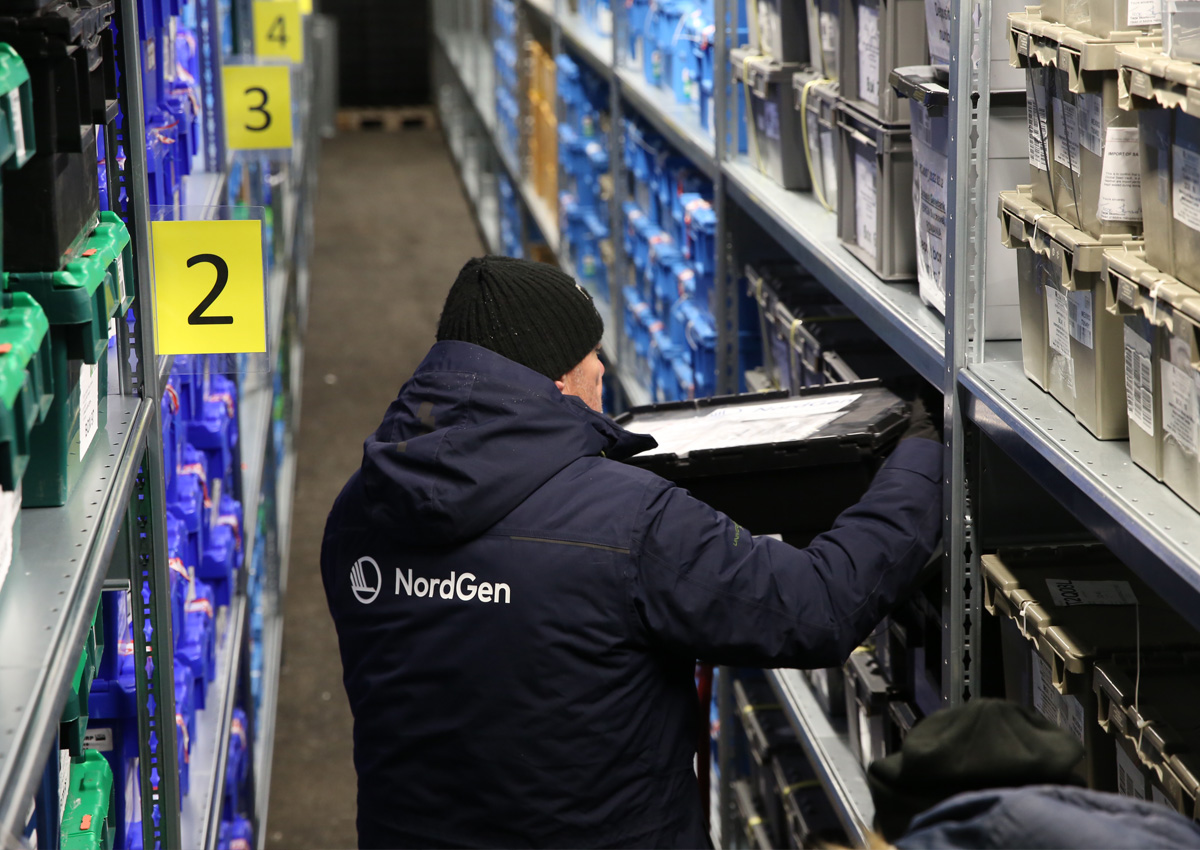
In September 2015, the first and only withdrawal from the Svalbard Global Seed Vault was made by the International Center for Agricultural Research in the Dry Areas (ICARDA). When the Global Seed Vault opened in 2008, ICARDA was among the first gene banks to deposit duplicates of its seeds, sending 80 percent of what was in their gene bank in Aleppo. The ICARDA genebank had the largest collection of crop diversity from the Fertile Crescent, including barley, durum wheat, faba bean, chickpea, and lentil.
When war broke out in Syria in 2011, the future of one of the world's most important seed collections was put at risk. To save the historic collection, ICARDA shipped 14,363 accessions to the Global Seed Vault between 2012 and 2014.
The request to withdraw the backup seeds in 2015 was made to restart their collection away from the ongoing conflict in their previous home in Aleppo while being based in Beirut, Lebanon. Due to the ongoing conflict in the country, requesting seeds from their gene bank in Aleppo was getting more and more difficult.
Each year since 2016, more than 30,000 samples have been regenerated for use by researchers and breeders. After years of hard work in both Lebanon and Morocco, ICARDA is now on its way to reconstructing its entire collection and continues to supply seeds to requestors.
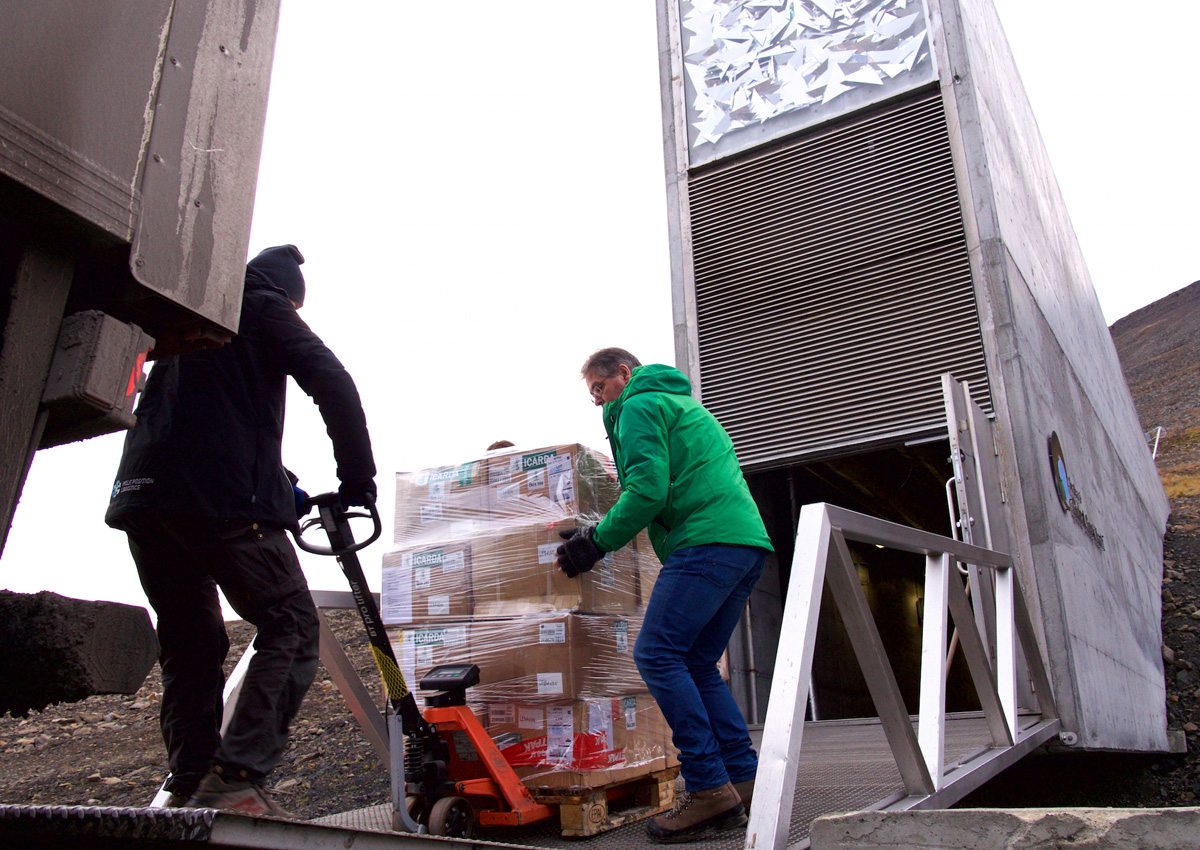
COVID-19 and the Global Seed Vault
The largest deposit since the Seed Vault’s opening in 2008 was made in February 2020 from 35 international and regional genebanks, national institutions, and civil society organizations. However, this was followed by only one deposit in October 2020 during the COVID-19 pandemic when travel restrictions made the international transfer of seeds to the Global Seed Vault more difficult.
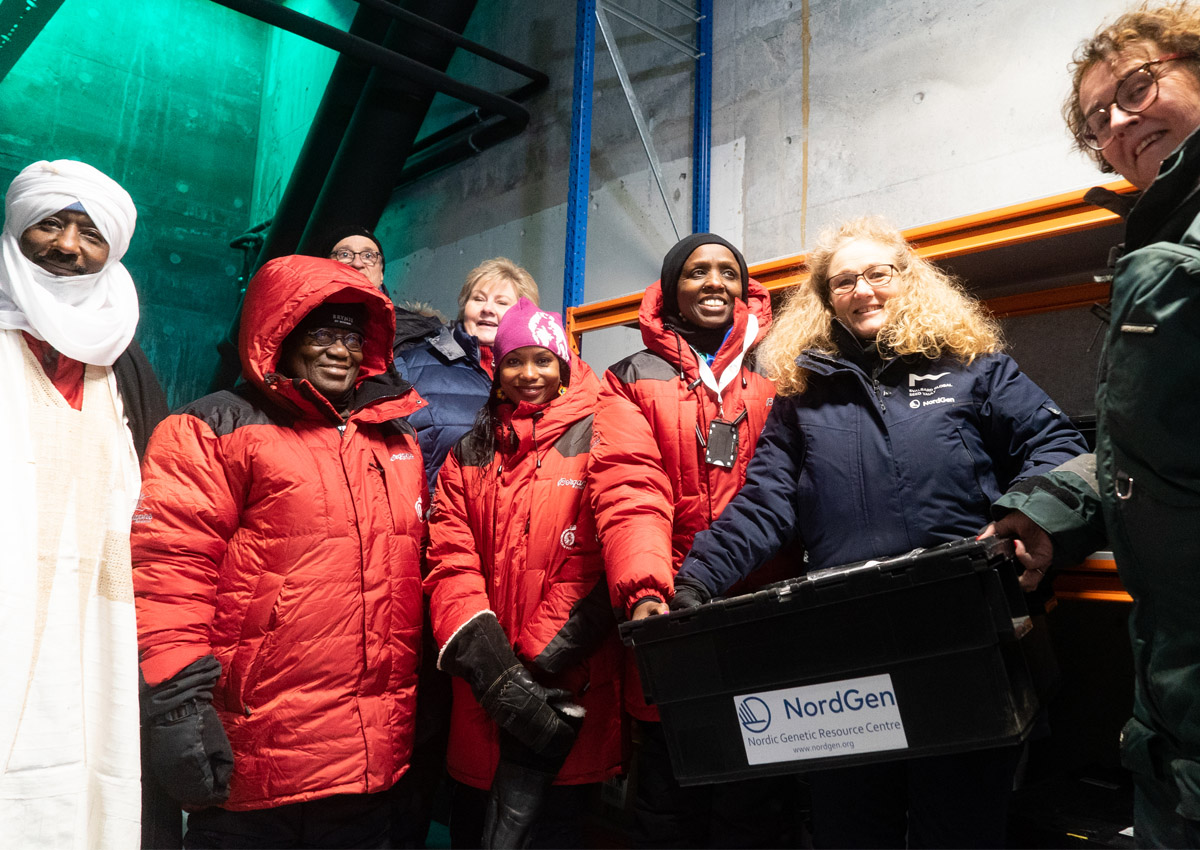
On June 1, 2021, the Global Seed Vault received the highest number of seed deposits since February 2020. The deposit of 85 boxes containing 30,410 seed samples came from seven genebanks from eight countries on five continents. The deposit reflected 2021 as the FAO’s International Year of Fruits and Vegetables and included seeds from The World Vegetable Center (WorldVeg). More than half of the WorldVeg shipment comprised tomato seeds.
Doomsday Vault Turns 15
The Global Seed Vault is closed to the public, and only a limited number of people have access to it. To celebrate its 15th anniversary, the Global Seed Vault has opened its doors to the world through a new virtual tour that accompanies the latest seed deposits. The global public can now experience being inside the Seed Vault and explore the diversity its seed chambers hold, including boxes of seed samples from all over the planet.
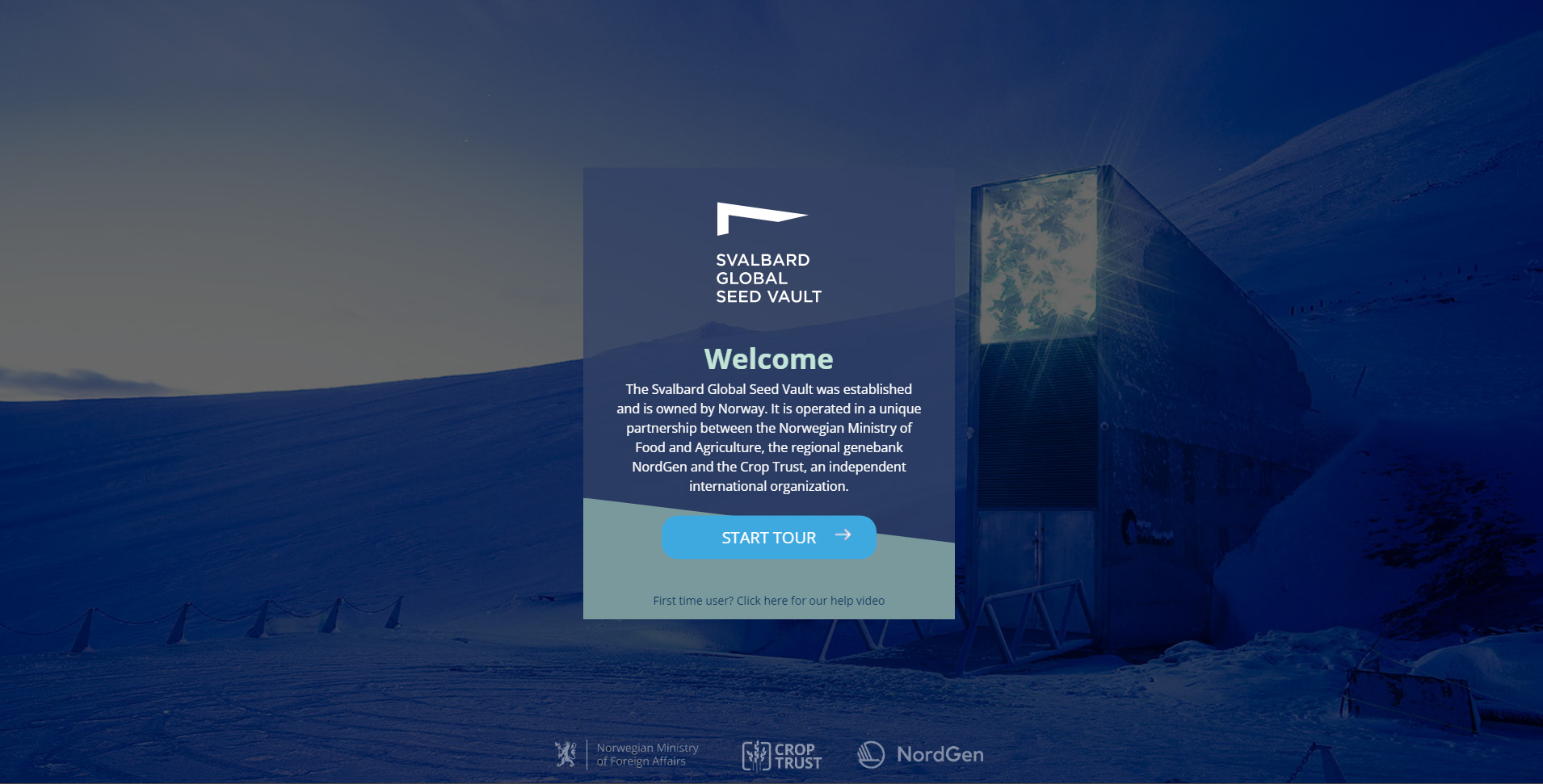
Aside from the virtual tour, the Global Seed Vault welcomed 19,585 seed deposits from 20 genebanks on February 28, 2023. The deposit includes collections from first-time depositors from Albania, Croatia, North Macedonia, and Benin.
The deposit includes 290 samples of maize, wheat, and beans from Albania and over 1,600 samples—including wild relatives—of rice and watermelon from Mali. The International Crops Research Institute for the Semi-Arid Tropics (ICRISAT) in India deposited 4,000 samples of sorghum, chickpea, and groundnut. The Seed Vault also received its first deposit from the non-governmental organization Fabia CSB Bogdanci in North Macedonia. The Julius Kühn Institute will deposit wild strawberries, and the Millennium Seed Bank at Kew Gardens will deposit beets, carrots, and bumblebee-friendly clover seed varieties.
Doomsday Seed Vault Offers Hope, Represents Unity and Security
In this time when agriculture and food production face challenges brought about by climate change, pandemics, and man-made conflicts, the Svalbard Global Seed Vault is a unique and hopeful international endeavor and cooperation for all mankind. It is a place of hope among the snow, ice, polar bears, and reindeer without political or diplomatic restrictions.
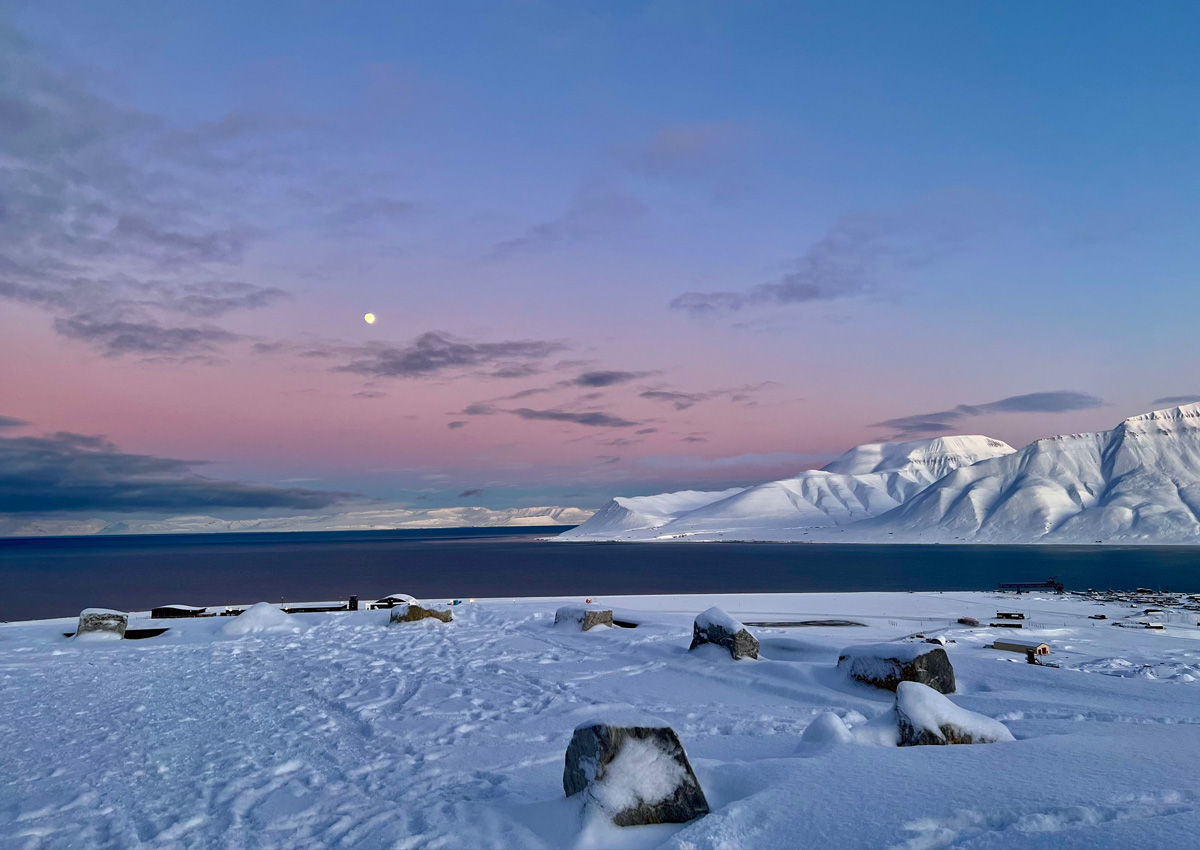
Stefan Schmitz, Executive Director of the Crop Trust, said, “From here in Svalbard, the world looks different. This Seed Vault represents hope, unity, and security. In a world where the climate crisis, biodiversity loss, natural catastrophes, and conflicts increasingly destabilize our food systems, it has never been more important to prioritize safeguarding these tiny seeds that hold so much potential to adapt our future food to such global threats.”
Sandra Borch, Minister of Agriculture and Food for Norway, said, “New genebank deposits are vital to preserving the genetic diversity of staple crops and regional seed varieties that small-scale farmers rely on. With this latest deposit, marking the 15th anniversary of the Seed Vault, we will have a safety backup of the world's crop diversity of approximately 1.2 million seeds stored in the vault. The whole of humanity relies on the genetic diversity of crops maintained in the world’s genebanks, and the Seed Vault is the last line of defense against the loss of that diversity.”
Lise Lykke Steffensen, Executive Director of NordGen, said, “The Seed Vault still takes my breath away every time I enter – and not just because of the cold. It protects the foundation of our future food supply. Genebanks are working tirelessly to protect key crops that are increasingly vulnerable, whether it be from natural disasters, conflicts, or other challenges. By offering a place where the genebanks can back up their invaluable and unique seed samples, the Svalbard Global Seed Vault creates a higher level of security for the world's agricultural biodiversity and, thereby, our global food security.
To visit the Svalbard Global Seed vault, go on this virtual tour.
For more details about the Svalbard Global Seed Vault, visit the following websites:
| Newer Post | Archive | Older Post |
Science Speaks is ISAAA Inc.'s official blog. Weekly blog articles, authored by ISAAA writers, partners, and invited contributors, aim to help share, disseminate, and promote scientific knowledge and its vital role in achieving global agricultural sustainability and development. Your support to Science Speaks will help us achieve this goal. You can help us by donating as little as $10.

